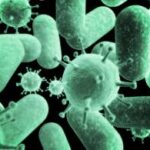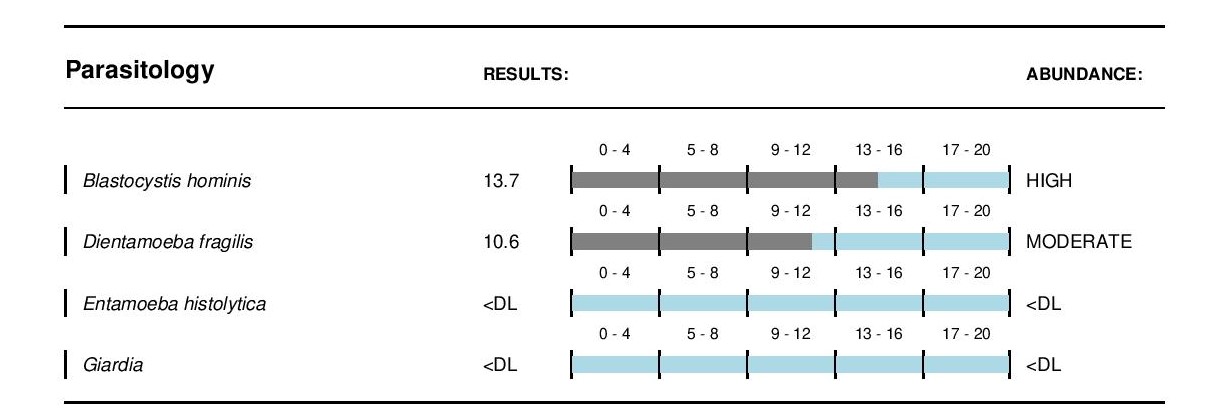 You might consider parasites or pathogenic bacteria something quite unsavoury you don’t want to have in your gut, however we have definitely had more than one patient who has actually been pleased to discover the presence of these critters! It is not unusual to be happy about finally finding out what might be at the root (or at least a contributing factor) to digestive issues, fatigue or other unexplained symptoms.
You might consider parasites or pathogenic bacteria something quite unsavoury you don’t want to have in your gut, however we have definitely had more than one patient who has actually been pleased to discover the presence of these critters! It is not unusual to be happy about finally finding out what might be at the root (or at least a contributing factor) to digestive issues, fatigue or other unexplained symptoms.
We have been running comprehensive stool testing for many years now and the advances in technology just keep getting better and better. Invivo’s GI EcologiX is the latest example. The technique used to examine the microbe populations looks for the presence of DNA rather than relying on the growth of the microbes under laboratory conditions. Gut microbes live in a very different environment to that which is replicated in the lab. Many of the bacteria simply will not grow in the presence of oxygen for example. This test acts more like a forensic detective, even traces of DNA can be identified, amplified and accurately quantified. This is cutting edge technology and completely surpasses other stool tests.
We discussed calprotectin as a marker of inflammation in a previous post, you can read that here. In this blog we are talking all about our freeloading friends – parasites.
Friend or foe?
Parasites may cause no issues at all in some people. However, if you have a lowered immune response, a sensitive gut or another infection or overgrowth, parasites may cause symptoms. It is all about considering the host (i.e you!) the parasite may be living off, as much as the parasite itself.
Occasionally there will be microbes found – such as the pure pathogens – that may be more likely to be causative of symptoms. However, their presence will also have ecosystem-wide effects that must be taken into consideration, i.e they impact on the rest of the microbiome so it is important not to be inappropriately heavy handed. You don’t want to use a sledgehammer to crack a nut.
Blastocystis what ?
Take Blastocystis hominis as an example – it is a very common parasite found throughout the world. It is transmitted via the faecal-oral route or from contaminated food or water.
Whether Blastocystis hominis infection can cause symptoms is still considered controversial. Symptoms are compounded by co-infection with other parasitic organisms, bacteria, or viruses. Nausea, diarrhoea, abdominal pain, anal itching, weight loss, and excess gas have been reported in some people with Blastocystis hominis infection. Many can peacefully coexist with it however.
Also interesting is that Blastocystis hominis may be able to cleave sIgA thus reducing your immune defences. We often see these together. This patient has sIgA lower than we would like to see. More on sIgA in the next blog.
Getting rid
Your GP may prescribe antibiotics to eradicate particular parasites or pathogenic bacteria or you may choose the herbal anti-microbial option. Certain pathogenic bacteria such as giardia or clostridium difficile can be infectious and causative of diseases so they will always require notification of your GP and the HSE.
Entamoeba histolytica is also a significant pathogen so we do not want to see them it in any amount on a stool test. Dientamoeba fragilis is another common protozoan parasite that may be asymptomatic in some people but may also induce IBS type symptoms in some and has been associated with the development of IBD.
As with any issue a patient needs support with, the approach and protocol will be highly individualised. When a pathogen is detected on a stool test we take measures to inhibit the impact they have on microbial diversity. At the same time, the resilience and immunity of the host must be also supported. Dietary interventions and nutraceuticals can help here.
If you would like nutritional support, or advice about testing, call us on 01 2655977 or book online now




